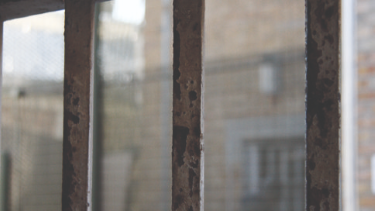New report by Refugee and Migrant Forum of Essex & London exposes the reality of life in asylum hotels
Refugee and Migrant Forum of Essex & London (RAMFEL) has released a new report highlighting substandard conditions in UK asylum hotels, including long-term overcrowding, poor nutrition, and inadequate support for vulnerable residents.
 The 34-page report, Profiting from People: Inside the UK's Asylum Hotels, can be downloaded here
The 34-page report, Profiting from People: Inside the UK's Asylum Hotels, can be downloaded here
RAMFEL says that its report exposes the reality of life in asylum hotels and the profiteering behind it. It states: "Though politicians claim that these hotels are luxurious and akin to 5-star all inclusive holidays, the reality is very different. Families are crammed into single rooms, children are malnourished and people with serious health conditions are left without the support they need. While residents endure this neglect, a handful of private contractors pocket billions of pounds of public money, enriching their shareholders from public contracts. Politicians of all parties have promised change, but behind misleading statistics and political spin lies the stark truth: lives are being destroyed, and racial division is being fuelled in the pursuit of profit."
The report is based on surveys and interviews conducted over the past two years with hundreds of people housed in hotels while awaiting decisions on their asylum claims. According to RAMFEL, nearly half of respondents reported living in overcrowded rooms, often with entire families sharing a single space, and 80% described the food as largely inedible. A third of those surveyed had medical conditions or disabilities but did not receive the necessary support, while most reported that complaints to authorities or hotel staff were ignored. Many families had been living in hotels for more than a year, and some for over two years, far longer than the short-term emergency accommodation originally intended.
Highlighting the ineffective complaints process, the report notes: "Complaints in asylum accommodation are frequent, yet resolving the problems experienced in hotels remains a significant challenge. Our questionnaire found that 75% had raised concerns, whether to Migrant Help, the Home Office, or directly with hotel staff. Yet in 76% of these cases, nothing changed. Residents described reporting issues repeatedly about food, safety, overcrowding, or health needs; only to be ignored or brushed aside."
RAMFEL criticises the role of private contractors in the asylum accommodation system, noting that a small number of companies, including Clearsprings Ready Homes, Mears Group, and Serco, have collectively made hundreds of millions of pounds in profits while public funds are spent on substandard housing.
The report states: "In the first seven months of the 2024–25 financial year alone, the government spent £1.7 billion on these contracts. According to the National Audit Office, in 2024/5, hotel accommodation accounted for 76% of the annual cost of asylum contracts but housed only 35% of people in asylum accommodation. In other words, £1.3 billion out of £1.7 billion in just seven months was spent on hotel-based accommodation. The business of accommodating people seeking asylum in hotels is not only inefficient but it's highly lucrative for the contracted companies. Between September 2019 and August 2024, Clearsprings, Mears, and Serco collectively made £380 million in profit from asylum housing. That equates to £146 in pure profit every minute for five years. These figures are not hypothetical or marginal, they represent taxpayer money flowing directly into the hands of private contractors."
It continues: "The lack of transparency around these contracts is striking. There is little oversight or independent monitoring, and complaints from residents are frequently ignored. Despite multiple scandals, fines and public outcry, these contractors continue to receive more government money. Meanwhile, people seeking asylum endure appalling conditions: families squeezed into single rooms, disabled people left without access to basic support, children losing weight due to poor nutrition. For private firms, and the government bodies who hire them, this suffering is simply the cost of doing business."
Figures cited in the report show that, despite political claims of progress, hotel use has remained largely unchanged under the Labour government, with more than 32,000 people living in hotels as of June 2025, an 8% increase on June 2024.
RAMFEL noted: "When Labour entered government in July 2024, they pledged to end the use of hotels. Ministers have since claimed progress, stating that numbers have fallen from 'over 400 at the peak of the previous government to 200 now.' This claim is misleading. Government records show that while hotel use did peak at over 400 in summer 2023, by July 2024 when Labour took office, 213 hotels were in use. A year later, in July 2025, the figure stood at 210. This equates to a reduction of only three hotels under Labour. Such selective presentation of statistics does not only obscure the truth, it undermines public trust. For families living in hotels for years on end, the government's political spin offers no relief."
The report calls for an end to prolonged hotel use, stricter minimum standards, investment in community housing, the right for asylum seekers to work, and a public-sector-led asylum system that prioritises dignity and integration. RAMFEL says that current policies fail to provide safety or stability for refugees, while the reliance on private contractors perpetuates suffering and profits a small number of companies.
"Asylum seekers deserve safe, dignified housing, the chance to rebuild their lives, and the opportunity to contribute to society. The government must stop relying on for-profit companies to provide accommodation and instead properly fund and support local authorities to house people within our communities. The billions currently wasted on hotel contracts should be redirected towards protecting refugees and strengthening public services for everyone. Anything less is a betrayal of the values we claim to uphold," the report concludes.